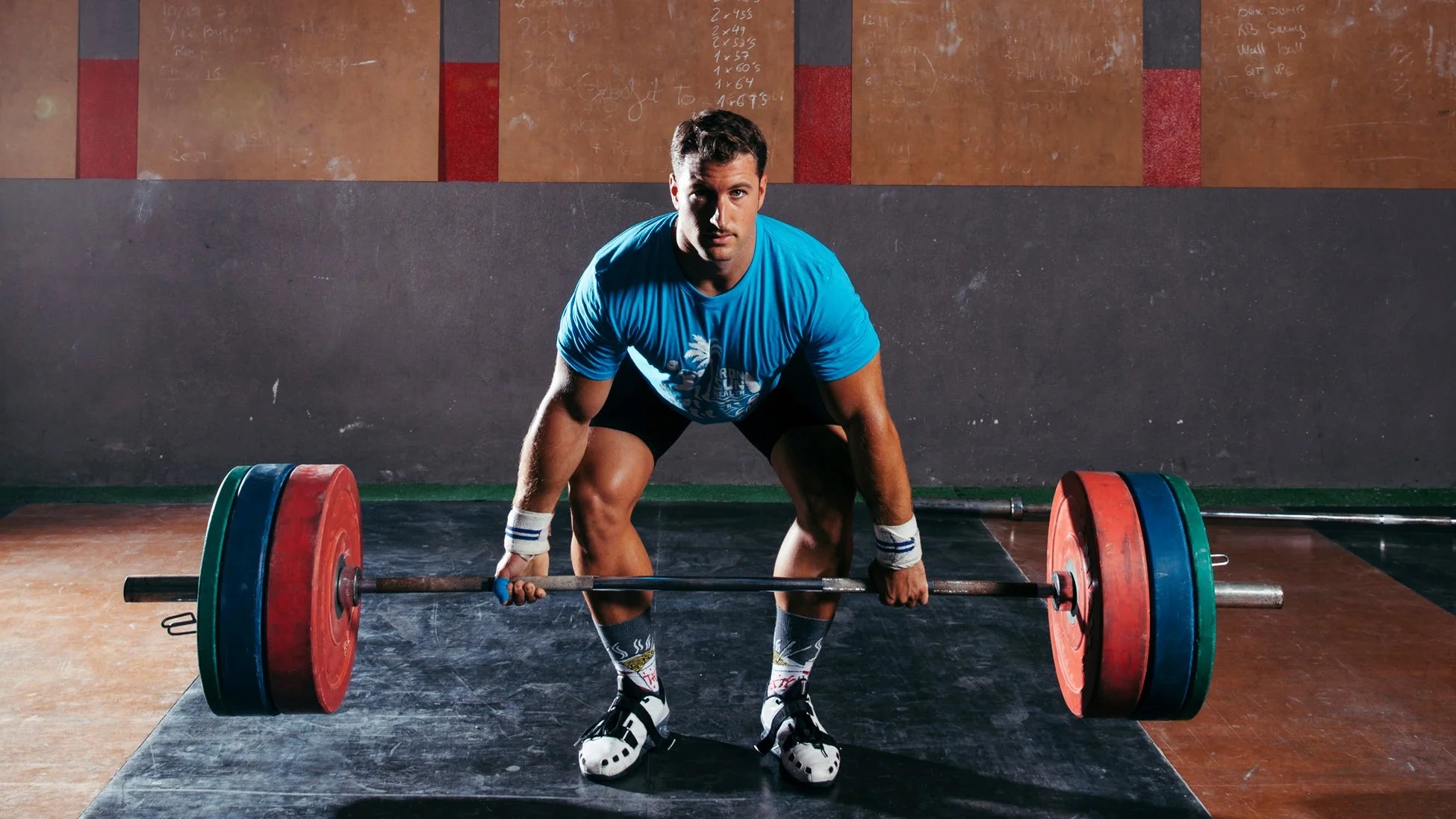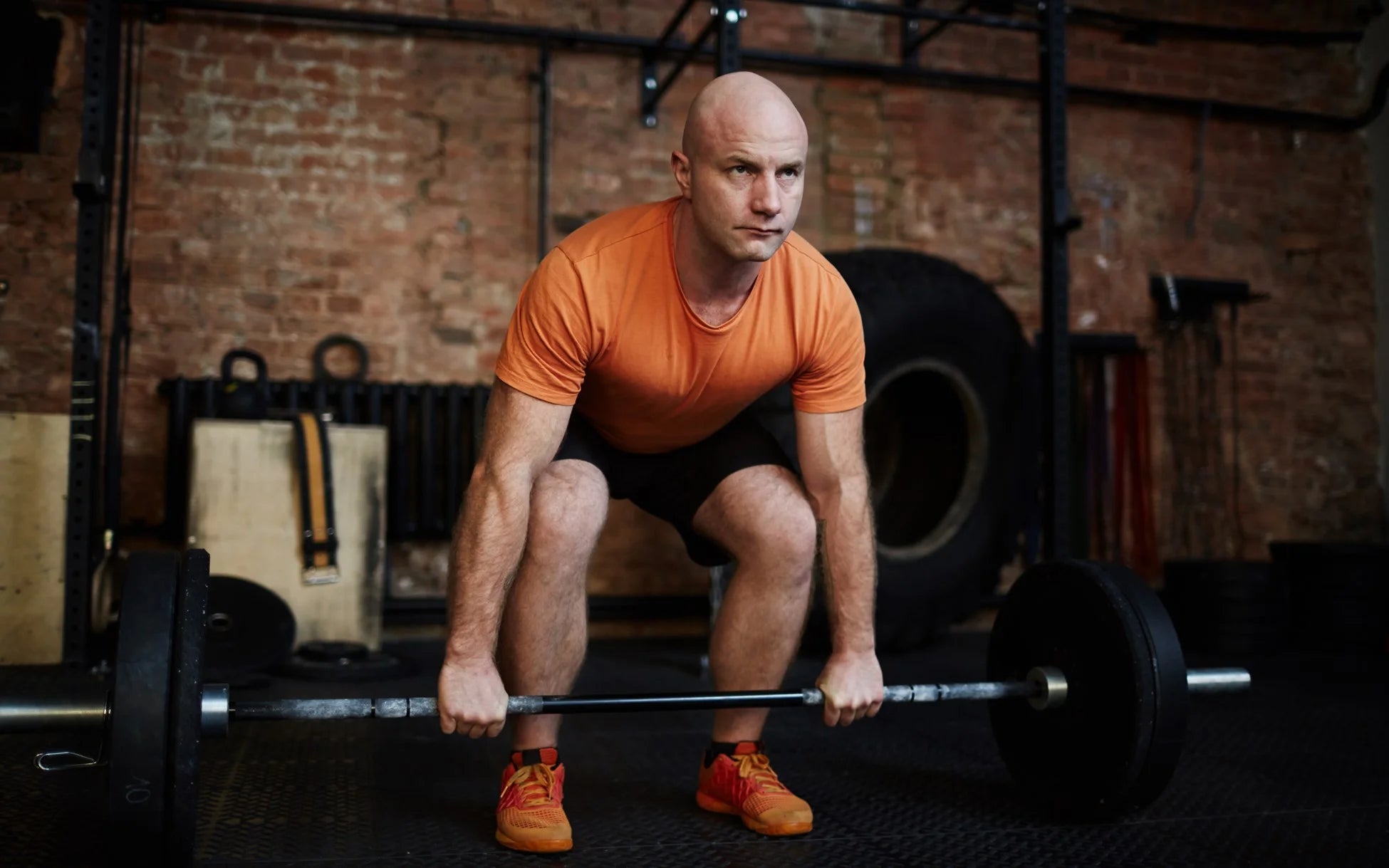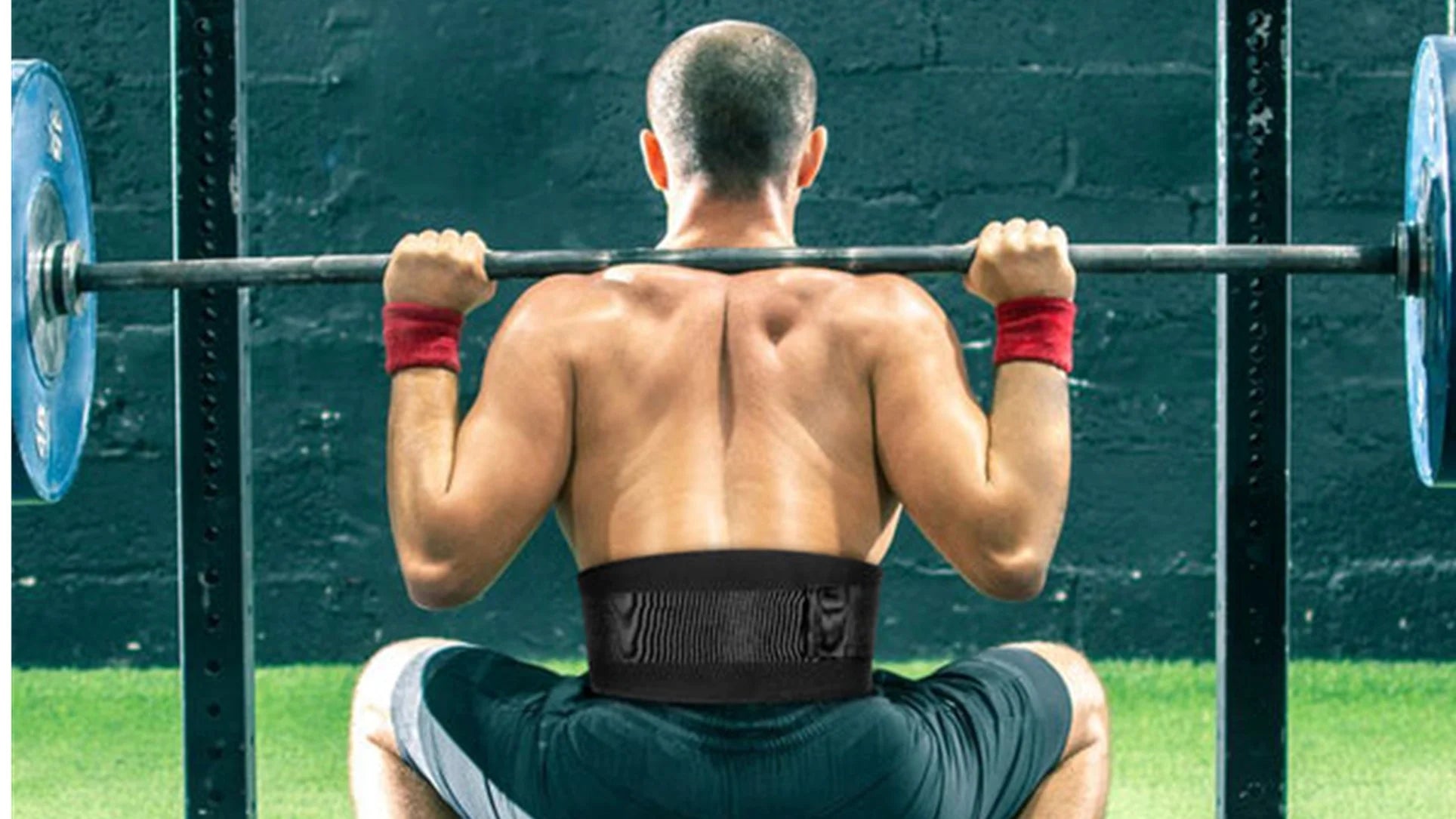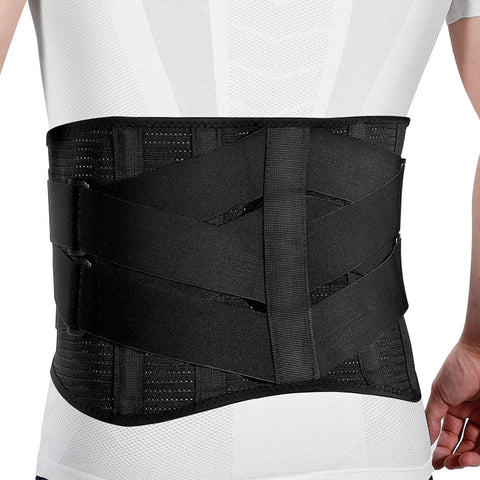How to Avoid Back Pain from Lifting Weights: 7 Techniques and Cautions to Know

Are you passionate about pushing your limits in the gym but finding yourself held back by nagging back pain? Whether you're a seasoned athlete, a dedicated fitness enthusiast, or just starting your fitness journey, back pain from lifting weights can be a frustrating barrier to progress. It's time to address the issue head-on and take control of your training! Join us to discover further.

Anatomic Cause Analysis of Back Pain from Lifting Weights
Picture this: as you're pumping iron, your muscles kick into gear, contracting to generate force while your blood pumps oxygen and nutrients for maximum performance, giving a further boost to performance.
But hold up, it's not just your muscles. Your spine and joints team up to coordinate and transmit all that power exactly where needed. It's a full-body effort that's got us crushing those goals!
But if we're overdoing it, that's when the trouble starts. Here are the three most common mishaps to watch out for:
Muscle Tear
Just like a rubber band, our muscles may snap if we pull them too far with too much weight. This may be the case if our form isn't spot-on, we are training too frequently, or simply the weight is far above our limit. While muscles can repair and come back stronger with a mild challenge, they can also get injured and require external intervention.
Slipped Discs
Our spin is not an integral structure. It consists of 24 small bones called the vertebrae stacked vertically on each other. What connects each small bone is called an intervertebral disc, a jelly-filled structure that enables the bending and twisting of the spine.
However, these small bones can slip and, in rare cases, fracture if we put too much strain on them during excessive arching.
Joint Problems
Heavy lifting imposes significant mechanical stress on the weight-bearing joints. But what joint do you use to lift weights? The joints most commonly used for heavy lifting include the hips, knees, and shoulders. If exerting too much pressure, these joints might respond by releasing inflammatory mediators into the joint space and amplifying the immune response.

5 Techniques to Prevent Back Pain from Lifting Weights
Lifting weights can be fun and good for your health, but doing it wrong can hurt your back. Check out these five smart ways to lift heavy stuff without getting hurt to stay safe and strong.
1) Keep A Wide Shoulder-Width Base
A wide base, such as shoulder-width apart, provides stability, reducing the risk of back injury. It also helps you squat correctly, protecting your lower back and allowing for the effective use of leg muscles when lifting heavy loads.
2) Maintain A Neutral Spine
Keeping your spine neutral is key for even weight distribution and stress allocation. This means you should not let your back arch too much or bend forward. Your spine has natural curves, and it’s best to keep these curves·
Here's how you can do it:
- Keep your shoulders back and chest out
- Keep your hips and shoulders level
- Bend your knees and hips, not your back.
3) Engage Core Muscles
Engage your core muscles, also known as your tummy muscles, to keep your back safe. Think of it like wearing a belt around your waist. It helps keep everything close and stable, protecting your spine from injury.
4) Keep The Load Close
Think of your arms like the legs of a crane - the closer the load, the less strain on its base. This helps you use your muscles more effectively and puts less strain on your back.
5) Lift With Legs Instead of The Back
Remember, your legs are stronger than your back, so let them do the work!
So, how do you lift with your legs? Here are some steps to follow:
- Stand close to the object, feet shoulder-width apart
- Take a squat, keeping your back straight
- Grip the object firmly and brace your core
- Push through your heels as you stand up, using the strength of your legs.
- Keep the object close to your body as you lift
6) Lift Smoothly and Slowly
Lifting too fast can cause jerking movements and throw your back out of alignment. On the other hand, taking it easy and moving with care can give your body time to adjust and distribute the weight evenly, reducing the risk of injury.
7) Avoid Twisting Your Torso
Twisting your torso while lifting weights is a no-go. This move can cause significant strain to your back muscles. Think of it like this—you wouldn't twist a rope too much because it would fray and snap, right? Your body's the same way. Too much twisting under heavy loads messes with your muscles and spine.
Here’s what you do: face the direction of what you’re lifting from start to finish. Need to turn? Move those feet instead of twisting at the waist. It’s all about keeping that back safe and sound while you power through your lifts. Stick to this rule and say goodbye to unnecessary back pain from lifting weights.
Power Zone Lifting Sum-up
The measures mentioned above are specifically designed to help you exercise safely without incurring back pain from lifting weights. They align with the power zone lifting principle.
The power zone is the section between your mid-thigh and mid-chest. This is where you can lift the most with the least effort. To reduce the potential for injury, try to keep objects within this zone when lifting or carrying.

Extra Cautions to Avoid Back Pain from Lifting Weights
Knowing how to lift safely is just the start. There are additional steps you can take to keep your back healthy. Get ready for some tips that’ll make a big difference!
1) Warm Up Properly
Warming up is like telling your body, "Hey, we're about to do something awesome." These help prepare your muscles for the workout ahead. So, you can start with
- Stretching
- light jogging
- jumping jacks
2) Start Light
Lifting too heavy, too soon is a big no-no. It's smart to start with light weights. This way, your body gets used to lifting. Think about it like learning to ride a bike—you wouldn't start on the biggest hill, right? So, grab those lighter weights first. You can work on getting your form just right without hurting your back.
3) Use Proper Equipment
Using good gear helps significantly in sports, as it provides the necessary support to enhance your performance safely. Must-have equipment for heavy lifting is:
- Sports shoes for foot support
- Lifting straps and gloves to secure a grip
- Chalk to reduce moisture on the hand
- Weightlifting belt and wrist brace
- Foam rollers and resistance bands for muscle recovery and relaxation
FIVALI offers some of the best wrist and lower back braces for weightlifting enthusiasts. There are also special limited-time discounts sitewide. Visit our website to find the right weightlifting brace and say no to back pain from lifting weights!
4) Stay Hydrated
Drink plenty of water before, during, and after workouts. Water is not just a thirst quencher; it boosts performance and helps prevent injuries. Proper hydration helps to keep your muscles and spine in good shape, preventing back pain· Being thirsty means you're already a bit dehydrated·
5) Incorporate Recovery Days
Taking breaks is key. Muscles and ligaments need time to rest and heal. Rest helps you come back stronger. It's not lazy. On the contrary, overexertion during workouts without sufficient breaks can lead to sore muscles and increase the risk of injury. So, exercise more smartly, not hard.
Other FAQs on Back Pain from Lifting Weights
1) Is it Normal to Have Back Pain After Lifting?
Yes, feeling mild back pain after lifting weights is normal. Your muscles are heavily used and sometimes torn before they auto-repair and strengthen, so it is normal to feel some muscle soreness or discomfort.
If you lift too heavy without proper form, preparation, and experience, significant or prolonged pain afterward may indicate underlying issues such as muscle strain, ligament sprain, or even disc-related problems.
Seek medical attention if necessary and learn to stand and move during weightlifting.
2) How to Cure Back Pain from Lifting Weights?
Adopting proper techniques is critical to avoid injury. Yet, we can still feel pain or discomfort as a natural result of high-intensity workouts. So, if that’s the case, here are a few tips to relieve the pain:
- Take a break from the weightlifting routine to allow natural recovery
- Apply Ice to reduce inflammation or heat to improve blood flow
- Stretch and strengthen to relax muscles and improve flexibility
- Practice Proper Lifting Technique to form the correct lifting habit
3) How Long Does a Strained Back Take to Heal?
A strained back from lifting can feel like a big setback. The good news is that, with rest and care at home, most people typically start to feel better from back pain caused by lifting weights within one to four weeks. Yes, you heard that right! Yet sadly, for some, the pain doesn’t go away after several weeks. This can indicate a severe injury and may require a longer recovery time, depending on the situation.

Here at FIVALI, we're dedicated to keeping you active and injury-free. Discover our range of premium back brace products for pain relief, designed to support your fitness journey with free shipping and a 15-day return policy. We can't wait to welcome you aboard!
-
Posted in
Brace, Healthy Lifestyle, sports













